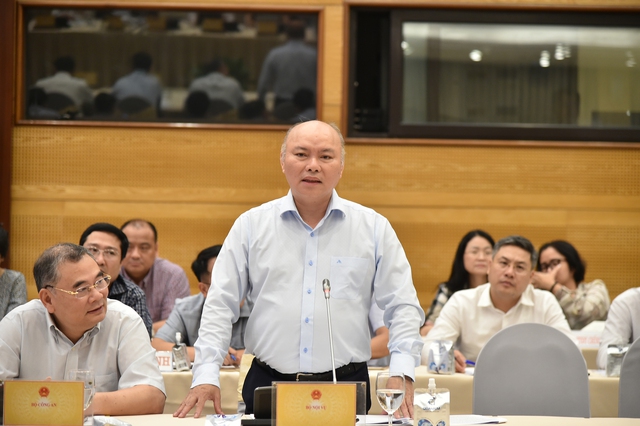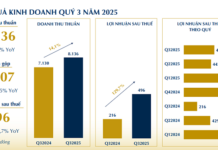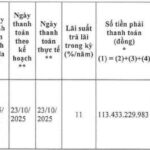On May 4-5, in a regular government press conference, the Ministry of Home Affairs’ Chief of Office, Mr. Vu Dang Minh, provided information on the progress of the implementation of tasks related to the salary reform from July 1. He reported that the Ministry of Home Affairs has collaborated with the Ministry of Labor, War Invalids and Social Affairs, the Ministry of Finance, the Ministry of Defense, the Ministry of Public Security, and several related agencies to focus on the development of five payroll systems.

Chief of Office of the Ministry of Home Affairs, Mr. Vu Dang Minh
According to Mr. Minh, regarding the salary scale for leadership positions in the political system, from the central to the commune level, it will take many years to issue the list of leadership, managerial, and equivalent positions to cover all agencies and sectors.
In addition, there is the professional and technical salary scale according to the civil servant rank and professional official title, which is applied to civil servants and officials who do not hold leadership positions.
Mr. Minh also provided information on three salary scales in the armed forces, including: the salary scale for military officers, police officers, and non-commissioned officers (based on position, rank, and military rank or rank); the salary scale for professional military personnel, technical experts in the police force; and the salary scale for defense workers, police workers (which maintains the current correlation of salaries between the armed forces and civil servants).
Recently, the Ministry of Home Affairs, together with other ministries and agencies, has completed the documentation to report to the Politburo for their opinions on the basic contents of the salary policy reforms. Mr. Minh said that there are some contents that are being received and clarified to request the Prime Minister’s opinion before reporting to the Party Central Committee’s Secretariat before reporting to the Politburo.
Mr. Minh specified a number of issues that need to be discussed in order to finalize the reforms, such as unifying the five salary scales and nine groups of position allowances for leaders, managers, and bonus regimes for cadres, civil servants, and officials in the armed forces.
In addition, there is the issue of preserving salaries and incomes for cadres, civil servants, and leaders and managers. “When we implement the salary adjustment, if the new salary is lower than the old salary, we will allow the salary to be preserved in accordance with Resolution 27, which states that the new salary must not be lower than the old salary,” Mr. Minh emphasized.
Next is the implementation of the subsidy regime for cadres and civil servants whose basic salary is lower than the lowest salary of region one applied to the enterprise sector. To ensure that this group of cadres and civil servants have a living standard that meets a fixed salary level, the Ministry of Home Affairs is currently requesting a salary level of approximately 5 million VND, which is the minimum regional salary applied to these subjects.
“When we reform salaries, we ensure that those with the lowest income do not receive less than 5 million VND. This figure is still subject to the Politburo’s opinion,” Mr. Vu Dang Minh stated.
Another issue under discussion is the implementation of a specific amount of money for cadres, civil servants, and non-professional activists at the commune level to apply to professional cadres of the grassroots government.
According to the Chief of Office of the Ministry of Home Affairs, these are the major issues that will be reported to the Politburo in the near future. After the Politburo provides its opinion, the Ministry of Home Affairs will coordinate with the relevant ministries to develop and submit three groups of documents to the competent authority.
Firstly, submitting to the Politburo’s Secretariat a Decision on the new salary regime for cadres, civil servants, and Party, mass organization, and Fatherland Front agencies. Secondly, submitting to the National Assembly’s Standing Committee a Resolution on the new salary regime applicable to cadres, civil servants, officials, and those under the management authority of the National Assembly’s Standing Committee and the National Assembly.
Thirdly, submitting to the Government a Decree amending Decree 24 dated February 12, 2024 of the Government stipulating the new salary regime for civil servants and officials in the armed forces to replace this Decree. At the same time, it is necessary to issue 12 circulars to provide very specific guidance on the payroll systems, payment methods, and salary calculation methods applicable to the new salaries.
Regarding ensuring resources for salary reform, Mr. Minh said that it is necessary to persistently and resolutely implement the motto of continuing to organize and restructure government agencies and administrative offices, and to improve the efficiency of public service units towards a streamlined organization to save on expenses.




































